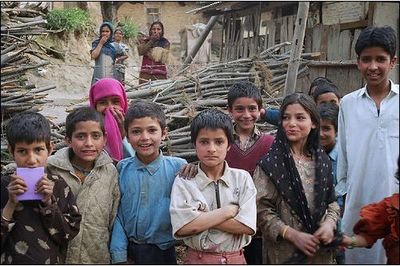Rakib Altaf
SRINAGAR, May 22: The behaviour of teachers with their students is responsible for nearly one third of the total school dropouts in Jammu and Kashmir, a study by Save the Children, a Non-Governmental Organisation (NGO) for child rights has revealed.
“In the eyes of the child, the teachers are the main obstacle in at least one third of the cases. We would expect just the contrary-that they would be enablers instead,” the European Union funded research titled “Challenges to education in Jammu and Kashmir” says.
“If a third of the children say that they left school because of the teacher, there must surely be something wrong with the teachers’ ways,” the report reads. It quotes one of the school goers who says, “Actually my teacher beat me badly with a stick and injured my eyes…Now I hate my teachers.”
The NGO conducted the research in 39 schools across 11 districts of the state, aimed at “investigating various obstacles that come in the way of education of children in the state.”
The findings of the study also include various problems in the pedagogy and the actual transaction between the teachers and the students to be ailing the educational system of the state. “There is little evidence of teachers engaging in preparation of teaching-learning materials. Also teachers rarely check to see if they are being understood; very few teachers elaborate a concept and a small number take care to summarise what had been transacted in the class,” the report says.
“The classrooms are dull and monotonous and the students are kept out of the process of meaning making.”
An expert on Sociology and Education, Dr. Abdul Gani Madhosh who was part of the team that conducted the study says that the research was done so that a strategy could be developed for the children of marginalised communities to get mainstream education.
“What we found was that there was a need for attitudinal and behavioural changes in the teachers,” Madhosh said.
The 132 page report also mentions that the schools were found to be deficient in facilities like toilets, drinking water facilities and classroom space in spite of the various Government policies that were implemented for improving the overall scenario of education in the state.
“Despite 7-8 years of Sarva Shiksha Abhiyaan (SSA), the schools lack even the most basic facilities. Also there were no libraries in any of the schools. ,” the study has found.
According to the report based on 39 schools, 27 schools had no drinking water facilities, 35 had no toilets for the students and teachers while as 34 schools had no separate classrooms for different grades. The report has also sharply criticised the functioning of the Mid-day Meals scheme in the schools for their “erratic functioning”.
While, the report says, teachers complained that parents never cared to enquire about their children’s education, the parents reported a low level of trust in the government school system.
“They blame the parents for showing little interest…[but] poor quality of training, lack of onsite support and follow up are among the key reasons stated as to why teachers are unable to do their jobs better,” it says.
While mentioning that the political unrest in the state was an underlying factor cutting across all the problems of the educational setup, the report also has given a set of recommendations for “energising the system for change”.
“Governance issues also need urgent attention in the state and a clear message that corruption and lack of accountability will not be tolerated and it is necessary to be dealt with strongly. Not only this, there is also a need for an organised form of mobilisation and participation of community members around education,” the report suggested among other things.











